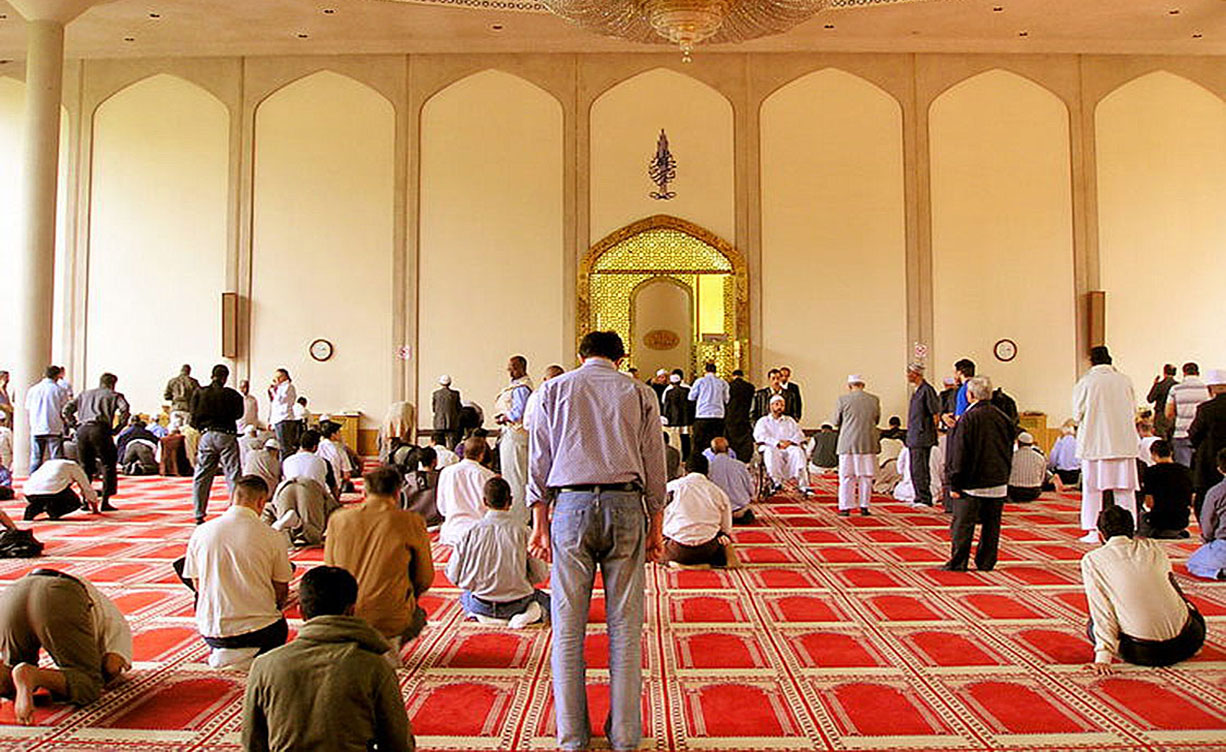
London Central Mosque (Photo: Tawelsensei/ Wikipedia Creative Commons)
Hamed Chapman
The more UK Muslims practise their religion and attend mosques, the more engaged they are with society and feel more British not less, according to an academic study.
“Muslims who attend mosques do not live separate lives away from mainstream society,” the research found. It was carried out by Siobhan McAndrew and Maria Sobolewska, lecturers at the Universities of Bristol and Manchester respectively.
Their paper, entitled Mosques and political engagement in Britain: participation or segregation, were the opposite to what was described as “popular myths” about mosques in the UK.
“Media portrayals have depicted some mosques as fostering traditionalism, radicalisation, and cultural divides between British Muslims and others,” it says.
The police, Home Office and Charity Commission as well as sections of the media claim mosques are used for radicalising extremism.
“With the belief that Islam constitutes a threat to British values so widespread, the possibility that mosques may play an important role in the integration of Muslims into British society and politics may appear counter intuitive.”
“We find no evidence that more frequent mosque attendance hinders the political integration of British Muslims and some that it promotes it. To the extent that mosque attendance encourages or at least does not prevent social contact with other ethnic groups and a sense belonging, lower attendance correlates with a sense of disengagement, perceived Islamophobia, and a sense of social distance.”
It was frequent attendees who were “as likely as those who do not attend to feel that they have something in common with other British people; more likely to have friends outside their ethnic or religious group; and overall more likely to engage in mainstream British politics given rates of engagement among British Muslims which are already high,” the study found.
“In sum, our results support an optimistic interpretation of Muslim civic and political integration in Britain and the pro-social benefits of religious involvement.”
Instead, their report said, “it is the non-religious predictors, such as the perception of prejudice and the feeling of social distance from whites, that are a more solid predictor of political disengagement and oppositional engagement than religious involvement.”
As they pointed out, “a good deal of academic research shows that religious participation is generally pro-social: people who participate in communal religious events tend to be more active in civic and political associations, and have more social and political capital.”
Nonetheless, distrust of religious Muslims was found to remain high in a country whose politicians and media often portray mosque-attendance as linked to so called “radical Islam”.
The research referred to “when discussing radical Islam, integration and the role of mosques, politicians are often careful to emphasise that most Muslims in Britain are peace-loving and loyal Britons.” But it found that the evidence regarding public distrust of Muslims by non-Muslims, suggested such “caveats are empty in effect.”
“Regular attendance at a place of worship is good for fostering trust and civic activity, regardless of the faith community in question,” McAndrew said. “We also know from previous research that religious people are known to show higher support for existing political arrangements – in that sense, regular attendance is a force for integration. We accordingly were unsurprised to find these effects for British Muslims, just as they have been found for Christians and others.”
“Despite media and political discourse that Muslim religiosity promotes separateness, in our research, we found no evidence for this, and some that it actually promotes civic involvement and political integration. Moreover, the factors predicting disengagement are similar to those for people who are not Muslim: for example, there are strong generational differences,” he said.